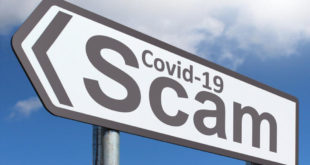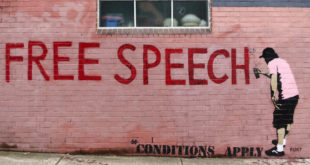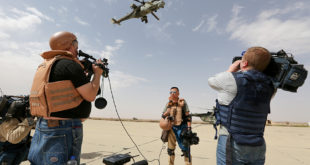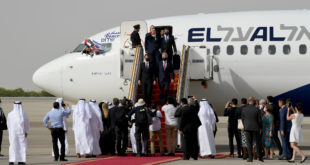Issue 30, summer/fall 2020 https://doi.org/10.70090/AA203PEC Abstract The study investigates respondents’ perception of the negative effects of US drama binge-watching on their cultural values as compared with its perceived effects on the cultural values of others. The study helps in understanding the extent to which Arab residents in the United Arab …
Read More »COVID-19 Pandemic and Diffusion of Fake News through Social Media in the Arab World
Issue 30, summer/fall 2020 https://doi.org/10.70090/HK20C19P Abstract Social media platforms are among the most widely used sources of information in the world. During the COVID-19 Pandemic, the public needs access to timely and reliable information about the disease symptoms and their prevention. Thus, this study aims to determine the respondents’ perception …
Read More »Sahar Khamis on Shifting Tides for Arabs and Muslims in the US
In light of the changes taking place in the United States, Arab Media & Society asked Dr. Sahar Khamis her thoughts on how the Arab and Muslim communities in the US have been affected. 1) What was the most notable effect of Trump’s policies on the Muslim community in the …
Read More »Trump, Twitter, and Regulation of Big Tech: Perspectives from the Arab World
The suspension of the Twitter account of former U.S. president Donald Trump after violating the platform’s publishing policies brought forth significant controversy and aroused many questions about the right to freedom of expression and its boundaries, not only in the United States, but across the globe. In the Arab region, …
Read More »The Impact of Social Networking Site Use on Social Capital and Happiness: A Field Study of Arab and Non-Arab Residents in the UAE (Arabic)
Issue 30, summer/fall 2020 https://doi.org/10.70090/SOA29SCH Scroll down for the Arabic abstract. As social networking sites (SNSs) grow in size across the United Arab Emirates, they are increasingly utilized as avenues for social partnership and sustainable development. These networks are also used as a means of creating social cohesion among the …
Read More »The Development of British Public Diplomacy in the Arab World
Issue 30, summer/fall 2020 https://doi.org/10.70090/AAR29BPD Abstract This paper attempts to map the major changes and developments of British public diplomacy in the Arab world. I argue here that the BBC and the British Council have greatly assisted British public diplomacy efforts and can be regarded as effective because exerting influence …
Read More »Journalism and Media Education in Times of Conflict: Three Cases from the Arab Region
Issue 30, summer/fall 2020 https://doi.org/10.70090/RASG29JM Abstract This paper examines the journalism and media education programs in three countries in the Arab region (Libya, Syria, Yemen) that have been or are still in the throes of civil wars and/or polarization along conflicting political ideologies and control of different geographical zones. Based …
Read More »Precedented History: Arab Media Coverage of the Israeli – UAE – Bahrain Normalization Agreement
Issue 30, summer/fall 2020 https://doi.org/10.70090/RA29PHAM On September 16, 2020, U.S. president Donald Trump hosted the signing ceremony for the tripartite diplomatic normalization agreement, known as the Abraham Accords, between the United Arab Emirates (UAE), Bahrain, and Israel at the White House. The UAE is the third Arab country to declare …
Read More »Hagia Sophia: An Analytical Overview of Religious and Media Argumentation (Arabic)
Issue 30, summer/fall 2020 https://doi.org/10.70090/OMR29RMA Scroll down for the Arabic abstract. Turkey’s Council of State, the highest Turkish administrative court, handed down its decision on July 10, 2020 regarding Hagia Sophia. The council reversed the monument’s status from a museum back into a mosque as from July 24, sparking heated …
Read More »The Creative Environment of Scientific Content Production on Social Networking Platforms (Arabic)
Issue 28, summer/fall 2019 https://doi.org/10.70090/ASH28CES Scroll down for the Arabic abstract. Social Networking platforms impose new methods of creating audiovisual content, through the use of new technologies; this has also altered the nature of content production and consumption. Social networking platforms represent an ostensibly free, advanced and low-cost space, allowing …
Read More » Arab Media & Society The Arab Media Hub
Arab Media & Society The Arab Media Hub










